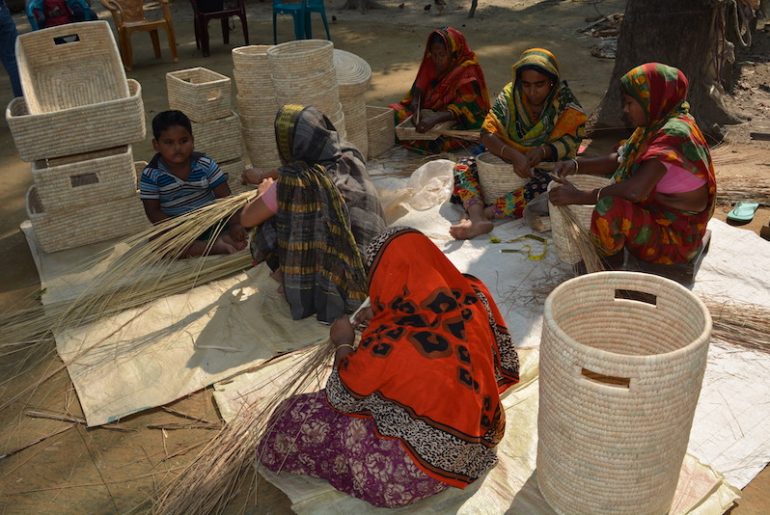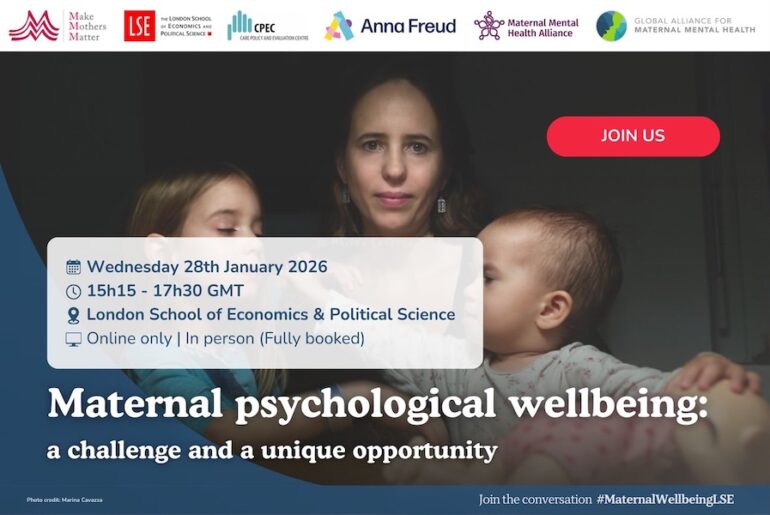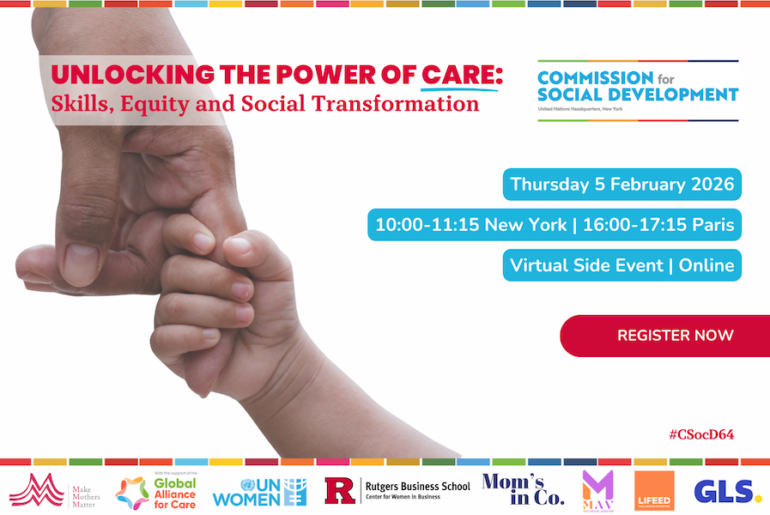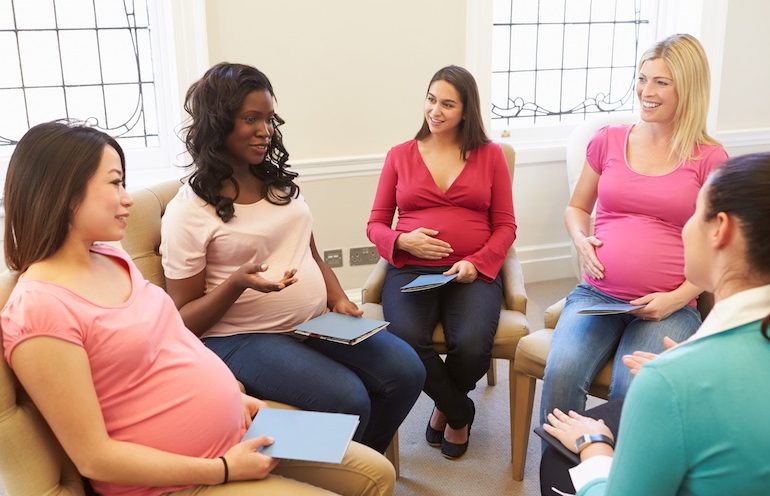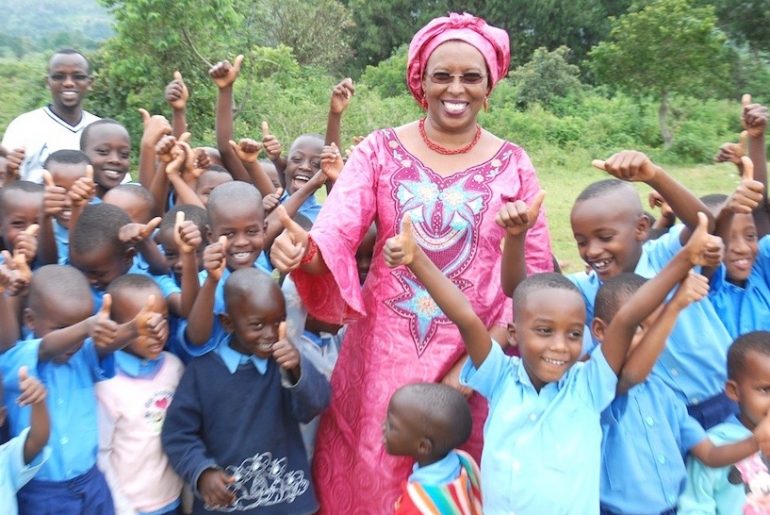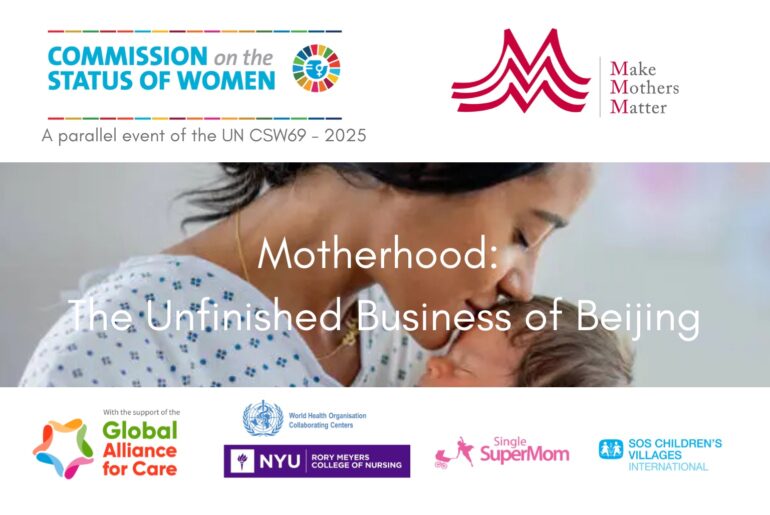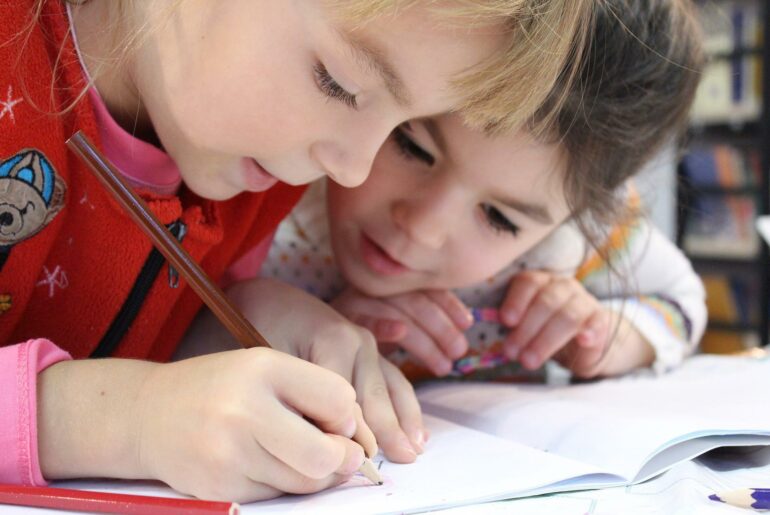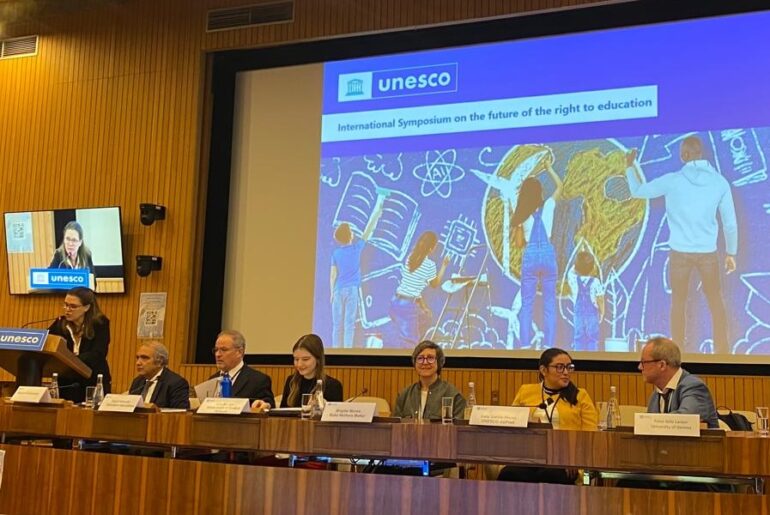Issues we address
As the Chinese saying goes, “women are half the sky”. If we estimate that about 80% of them are mothers, we can consider that the majority of issues addressed at the United Nations, UNESCO and the European Union concern mothers and their children.
Mothers and the Economy
They often face discrimination related to motherhood, as well as poverty, the challenges of reconciling different responsibilities ... But without the mothers, which economy?
News on Mothers and the Economy
All mothers work and must be recognized as essential economic actors - without maternity penalizing them. The recognition of unpaid work, the reconciliation of family and professional life, the fight against discrimination and poverty are the heart of MMM's work.
Maternal Psychological Wellbeing: A Challenge and a Unique Opportunity
13.01.26
Wednesday 28 January 2026 | 15:15 – 17:30 GMT London School of Economics & Political Science (LSE) – Live broadcast #MaternalWellbeingLSE Maternal mental health is one of the most pressing
Unlocking the Power of Care: Skills, Equity, and Social Transformation
09.01.26
UN New York – Join us online on 5th February for an official side-event to the 64th UN Commission on Social Development, which will focus on how harnessing the skills
Mothers and Health
Mothers are at the heart of early childhood development and family health issues ... But maternal health is still too often a challenge.
Maternal Psychological Wellbeing: A Challenge and a Unique Opportunity
13.01.26
Wednesday 28 January 2026 | 15:15 – 17:30 GMT London School of Economics & Political Science (LSE) – Live broadcast #MaternalWellbeingLSE Maternal mental health is one of the most pressing
Care, the overlooked dimension of social development and justice
08.01.26
UN New York – In a written Statement submitted ahead of the 64th UN Commission on Social Development, Make Mothers Matter highlights a crucial yet still largely overlooked dimension of
Mothers and Peace
First victims of violence and armed conflict ... Mothers also have the power to educate to the values of peace, to bring people together and to act at all levels for a culture of peace
News on Mothers and Peace
Since its creation, MMM has been promoting the essential role of the mother for peace, through the safety and love that they give to their children from the moment of pregnancy, but also through the education and transmission of values within the family. Mothers are also key partners in the fight against radicalization and violent extremism.
Placing Target 5.4 at the Core: A Key to Accelerating SDG Synergies
06.07.25
UN New York – Ahead of the 2025 High-Level Political Forum (HLPF) MMM's written statement focuses on Sustainable Development Goal (SDG) 5 on Gender equality, which is under review this
Motherhood: The Unfinished Business of Beijing
09.03.25
UN New York - The Beijing Declaration and Platform for Action (1995) is a landmark global policy document focused on advancing gender equality and women's rights, and is considered one
Mothers and Education
Mothers are the primary caregivers and educators of their children. But being effective parents also require skill and knowledge, education and parenting support
Care, the overlooked dimension of social development and justice
08.01.26
UN New York – In a written Statement submitted ahead of the 64th UN Commission on Social Development, Make Mothers Matter highlights a crucial yet still largely overlooked dimension of
The Future of the Right to Education: Make Mothers Matter at UNESCO to Bring Parents’ Voices Forward
15.12.25
UNESCO, Paris – On the occasion of the 65th anniversary of the 1960 Convention against Discrimination in Education, UNESCO brought together the global community at an International Symposium on the
